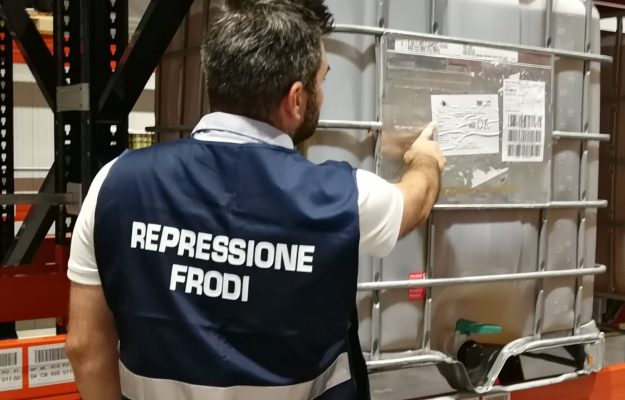The agro-food chain is one of the sectors that contribute most to the formation of the national Gross Domestic Product (GDP), with over 500 billion euros in value. The merit goes to quality, which is recognized around the world, and also to a system of controls that at times might appear excessive as well as burdensome; however, it is a world reference model, due to its efficiency in protecting the health of consumers and companies that work honestly. The control system continued to work at full speed even during the disastrous year 2020 of the Pandemic, notwithstanding all the restrictions we have had to learn to follow. According to the report of the Inspectorate of Quality and Fraud Prevention of the Ministry of Agriculture (ICQRF), there were 70.992 anti-fraud controls in 2020, of which 58.824 were inspections and 12.168 were analytic. There were 37.508 sector professionals inspected and 77.080 products checked. Irregularities regarded 11% of the products, and instead 7.4% of the samples analyzed were found to be irregular.
There were 159 reports of criminal violations, 4.119 administrative disputes, 4.762 warnings issued to sector workers, and over 22 million kilos of goods confiscated, totaling a value of 21 million euros.
The controls, explained the ICQRF, encompassed over 90% of food products and 10% of technical means for agriculture (feed, fertilizers, seeds, plant protection products). Referring to the individual agro-food sectors, 26.332 controls involved the wine sector, which is by far the most controlled sector (overall 12.062 professional workers were controlled, and irregularities were found in 18.7% of cases, for a total of 30.752 products controlled, of which 10.4% were irregular, including documentary or labeling irregularities). Then there were 10.646 controls on olive oil, 6.856 on dairy products, 3.445 grains and derivatives, 3.191 fruit and vegetables, 3.166 vegetable preserves, 3.016 in the meat sector, 1.794 on spirit drinks, 1.556 on honey, 467 on eggs, 382 on sugars and 4.099 controls in other sectors.
Prosecco has been confirmed one of the most affected among the various products, internationally. As a matter of fact, the Italian supervisory authorities, between 2015 and 2020, carried out over 4.000 controls outside of Italy. And, out of these controls, 1.085 referred to Prosecco, followed at a distance by Parmigiano Reggiano (493), while 283 concerned the issue of wine kits. While E-commerce during the Pandemic has acquired a more important role than in the past, in 2020 the ICQRF blocked 1.079 cases of irregular sales on the web (almost all on EBay), and the most affected products were Extra Virgin Olive Oil (especially from Puglia, Calabria and Tuscany), and once again, Prosecco and Parmigiano Reggiano.
“Italy is renowned for its identity as well as for the high quality characteristics of its agro-food productions. Our country boasts 870 products registered as Geographical Indications”, underlined the Minister of Agricultural Policies, Stefano Patuanelli, “and preserves a true cultural heritage, unique in Europe. Enhancing and protecting Made in Italy products, by contrasting all those fraudulent behaviors that undermine correct market relations, is one of the strategic priorities at a national level. At the same time, it is increasingly necessary to ensure an adequate level of protection for consumers, and to guarantee informed and safe purchasing choices, through the implementation of a highly specialized control system in all divisions of the agro-food sector. The ICQRF has made a significant contribution to protect the agro-food sector, as the results obtained and presented below have clearly evidenced. It is my intention to work on further strengthening the control system, in order to guarantee even higher standards of legality and, in this way, to contribute to protecting the quality and safety of the products promoted on our markets, in line with the needs of consumer protection as well as safeguarding our businesses”.
Copyright © 2000/2026
Contatti: info@winenews.it
Seguici anche su Twitter: @WineNewsIt
Seguici anche su Facebook: @winenewsit
Questo articolo è tratto dall'archivio di WineNews - Tutti i diritti riservati - Copyright © 2000/2026







































































































































































































